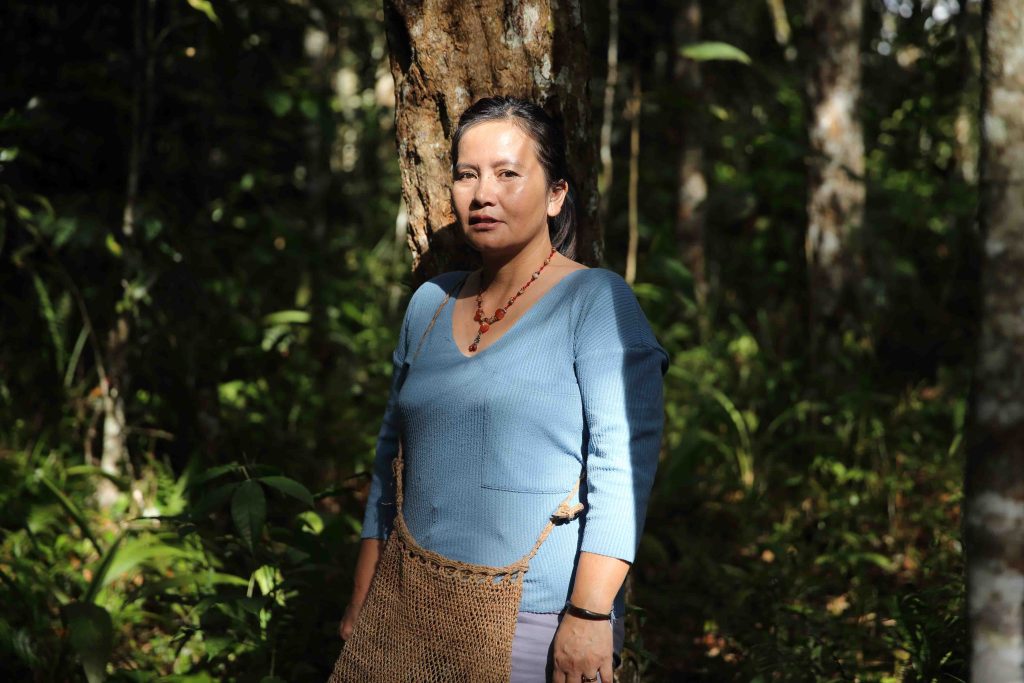An Indonesian Batak woman is among this year’s winners of the Goldman Environment Prize, dubbed the “Nobel” for environmentalists
Delima Silalahi, 46, has been recognized for her efforts to secure legal stewardship of 7,200 hectares of tropical forest land for six Indigenous communities in North Sumatra from a pulp and paper company that had partially converted it into a monoculture, non-native, industrial eucalyptus plantation.
She is executive director of Kelompok Studi dan Pengembangan Prakarsa Masyarakat (KSPPM), an NGO dedicated to traditional forest protection.
Delima was an activist in college and joined KSPPM as a volunteer in 1999. The KSPPM office is located far from her family, and she spends weeks away from them, often sleeping at the office and in the community.
In 2013, a precedent-setting constitutional court ruling confirmed that customary forests are not state forests, creating the opportunity for Indonesian Indigenous people to claim legal stewardship of their traditional forest territories.
Concerned about the massive expropriation of Indigenous territories for the pulp and paper industry — and its huge impact on forests in the Lake Toba region — Delima and her team at KSPPM began organizing local communities to legally claim their traditional forests.
Delima traveled from village to village and educated communities about laws that support the recognition of Indigenous peoples’ rights and claims to customary forests.
Women in Tano Batak communities are often excluded from decision-making, but she made sure that their voices were heard throughout the process, incorporating gender education as a central organizing tool.
As a woman, Delima faced many challenges and was criticized for being away from her husband and children for weeks at a time.
She and KSPPM facilitated participatory mapping of the forests with each community to document its traditional territory. They organized high profile protests against the company in the districts where it operates.
In June 2021, Delima and community members met with the Minister of Environment and Forestry, urging her to recognize the communities’ traditional forests.
Finally, in February 2022, due to Delima’s and her community’s dedicated campaigning, the Indonesian government granted six Tano Batak communities legal stewardship of 17,824 acres of their customary forests.
The six communities have already begun reforesting the area with native forest species, including benzoin trees.
Delima and KSPPM are supporting the communities as they replant and restore the ecosystem while boosting the forests’ tree cover and natural climate resilience.
In standing up to the most powerful industry in North Sumatra, Delima and her community secured legal stewardship of the communities’ traditional forests — a win for climate resilience, biodiversity, and Indigenous rights.
Indonesia is among the world’s largest emitters of greenhouse gases. Most of the emissions are the result of cutting and burning forests and peatlands to establish industrial plantations.
Between 2015 and 2019, fires burned 10.8 million acres of forest and peatland, an area larger than the Netherlands.
Indonesia has also the third largest total area of rainforests in any country — with vast, biodiverse forests that store enormous quantities of carbon essential to combating climate change.
The island of Sumatra is the only place on Earth where rhinos, orangutans, tigers, and elephants co-exist in the wild.
Today, habitat destruction threatens these critically endangered species. Among the most threatened is the Sumatran tiger: the remaining population of 500 is the last extant tiger population in Indonesia.
The Goldman Environmental Prize is a prize awarded annually to grassroots environmental activists, one from each of the world’s six geographic regions: Africa, Asia, Europe, Islands and Island Nations, North America, and South and Central America.






